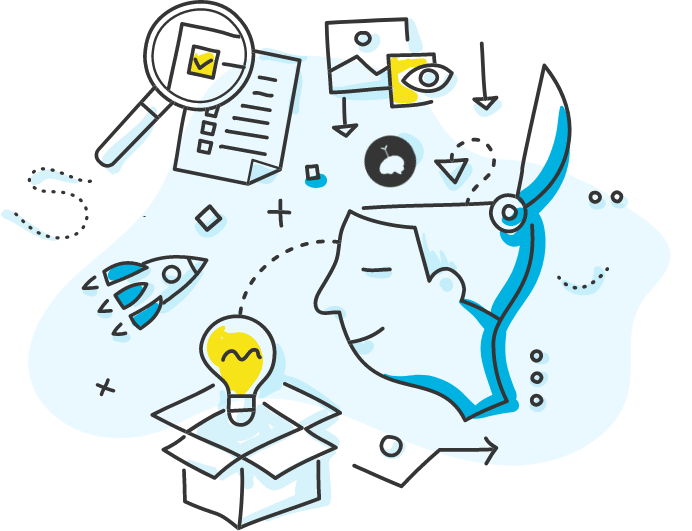
I recently took a mini, month-long sabbatical from work, with an intention to totally disconnect from digital life and recharge in the analog world. I went camping, cracked open more physical books, and restarted a couple of analog hobbies that had fallen by the wayside, like knitting and playing piano. I went on more walks through the forest near where we live, spent more time with people, and did everything I could to step back from work and screens.
My goal to disconnect was more difficult than expected. Digital devices tempted me in the in-between moments; the short, quiet lulls between tasks. Each time I picked up my phone there was a seemingly never-ending stream of messages to catch up on, urgent work fires to put out, and documents to gather and sign. As the month went on, I did a progressively better job of delegating, outsourcing, and delaying these projects, so I could actually step back and properly slow down.
A few weeks ago, I mentioned how our average daily screen time has risen to more than 13 hours in the last year and a half. In other words, we spend more than three-quarters of our waking moments in the digital world—and there’s often no shortage of messages and updates to keep up with as a result. As I’ve written in the past, the more time we spend on technology, the quicker the hours seem to pass—time accelerates when we tend to what’s familiar, including new emails and social media pings.
Slowness is typically found in our analog life, not our digital one. If you’re looking to slow down and calm your mind, there are several strategies you can try. Here are a few I found helpful during my month off.
- Mind the gaps in your day. Technology (read: the endless social media scroll) can seep into every spare moment like water, flooding our schedule with distraction. This makes us less intentional over time because we have fewer moments to reflect and plan the course of our immediate future. A helpful tactic for combatting this: don’t automatically pick up your phone when you finish or are ready to switch to another task. This will give your mind the chance to slow down before shifting to the next thing, and you’ll also subject yourself to fewer anxiety-inducing updates.
- Keep secondary devices out of sight. When hitting a wall of discomfort while working on a task, it’s worth using that time to daydream. This mind wandering can be used to come up with a best path forward—ideas to break through the impasse and decide what to work on next. (One study found that we think about our goals 14x more when our mind is wandering compared to when we’re focused.) In the moment, we have the impulse to trade this discomfort for what’s most immediately gratifying—often that means paying attention to our go-to stable of apps. I find it’s helpful to keep your phone and other secondary devices out-of-reach while doing digital work—and to enable a distractions blocker if you can.
- Meditate. I suggest meditation so often that someone ought to make a drinking game. Those who meditate talk about the practice so much that this advice has basically become cliche—but people espouse the benefits of meditation because it really works! It’s a shortcut for slowing down, becoming more deliberate, and even boosting productivity. The more you meditate, the more easily stress will roll off your shoulders, as you become more patient and accepting. Better yet, it’s easier to get started than you might expect.
- Go analog. There are activities we can do either physically or digitally—reading a book, socializing with others, and journaling about our thoughts included. Some simple advice: if the option exists, do things the analog way. The digital world of distraction won’t be a tap or click away, and you’ll move through the activity more slowly. And don’t worry, what you lose in speed, you more than make up for in deliberateness.
- Carve out some tech-free whitespace. A final tactic: schedule time to separate yourself from the shiny screens that comprise your digital life. I personally disconnect from the internet between 8 p.m. to 8 a.m. each day. For you, this blocked off time might be a once-a-week tech sabbath. Taking the time to step back from technology gives our mind the break it needs—and deserves.
Give these tactics a try the next time you feel yourself wanting to rest and calm your mind.




